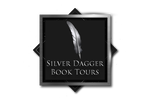Hypatia of Alexandria
|
Sign up for tour updates!New tours. All genres. All ages. All the time. Thank you!You have successfully joined our subscriber list. Categories
All
Archives
July 2024
|
Hypatia of Alexandria
|
Sign up for tour updates!New tours. All genres. All ages. All the time. Thank you!You have successfully joined our subscriber list. Categories
All
Archives
July 2024
|
